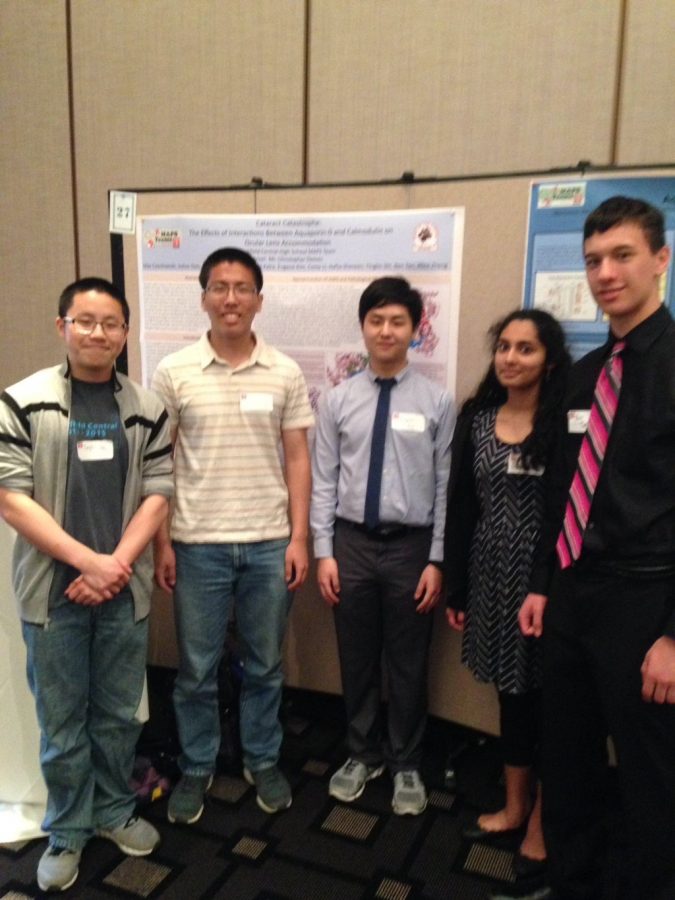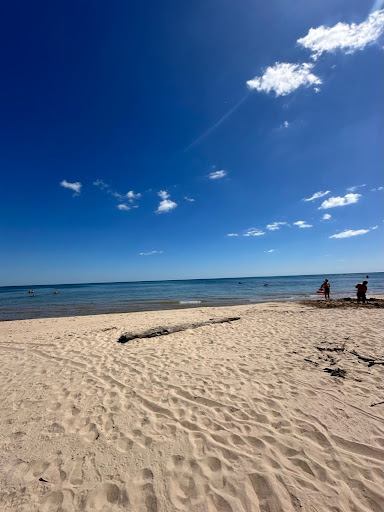BC’s MAPS Team: it’s not about geography
MAPS team presents at Marquette in spring 2016. (From left to right:) Tinglin Shi (‘18), Corey Li (‘16), Eugene Kim (‘17), Aparna Jayashankar (‘18), and Benjamin Tan (‘19).
Let’s clear up a common misconception: The MAPS club has nothing to do with geography. MAPS, which stands for Modeling A Protein Story, is the new version of the old SMART team. The MAPS club researches and models a specific protein, then presents their findings at Marquette. MAPS truly creates wonderful and worthwhile experiences.
One of the many great things about this club is that it is all about student-driven research. MSOE and Mr.
Demos, the club advisor, help and advise the team, but at the end of the day, it is up to the students. Students have the opportunity to learn more about proteins – this really helps for biology classes, just saying – and how essential their functions are to the human body. Then they dive specifically into one protein, and discuss its relation to a real world problem.
Last year, the team worked with a protein called Aquaporin, specifically Aquaporin-0 (AQP0). AQP0 is found in the eyes, and the main function of Aquaporin is to transport water through a cell’s plasma membrane. The team related their findings to a real-world issue – cataracts – and discussed how malfunctions of AQP0 could lead to this malady.
A large part of the presentation is actually making a model of the protein. This is done on the computer (if you enjoy coding, join MAPS), and it is meant to be 3D printed. The team makes an effort to show all of the different characteristics of the protein, and then discusses the functions of those characteristics.
Eventually, the team puts together a poster about the protein and its effects. They subsequently present this, along with their model at an event at Marquette. Aparna Jayashankar (‘18) said, “It’s one giant pooling of knowledge and a truly amazing opportunity to delve into the world of science,” when she was describing this event.
This all seems kind of daunting when you just read about it, but it is not as hard as it appears to be. The leader of the team, Eugene Kim (‘17), said, “It seems like some people are a bit afraid to try MAPS out because it seems so overwhelming at first–I know I felt that way when I started. But if you have any sort of interest in biology, biochemistry, that sort of thing, it’s definitely worth giving it a try. It’s about learning, after all.” He goes on to explain the overall dynamic of the club. “We’re fun, we’re inclusive, we’re a team.”
MAPS is a unique way to learn more about proteins, gain experience with research, and hang out with a bunch of great people. If you are interested, feel free to contact Eugene Kim.






